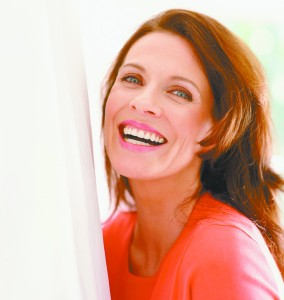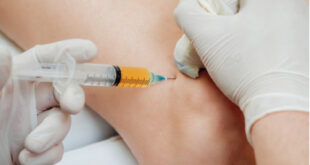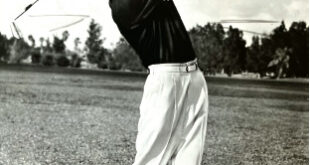By Alan J. Bauman, M.D. –
 Many women don’t realize the impact aging hair can have on their appearance. How old a person looks from across the room often has less to do with facial wrinkles and a lot more to do with signs of prematurely aging hair. Thinning is one of the biggest threats to aging hair.
Many women don’t realize the impact aging hair can have on their appearance. How old a person looks from across the room often has less to do with facial wrinkles and a lot more to do with signs of prematurely aging hair. Thinning is one of the biggest threats to aging hair.
As our hair ages, it is common to see hair thinning due to a loss of density, diameter and/or damage that leads to breakage.
Just as women create a healthy skincare routine to protect from wrinkles, fine lines and other signs of aging, the same should be true for our hair. One of the best things you can do for your hair is to take a proactive approach to managing any signs of aging, especially thinning and seek professional medical advice when necessary.
Here are five things every woman should know about aging hair.
Signs & Symptoms
It is no secret that our bodies change as we age – but many women overlook the impact aging has on their hair. While unruly grays are the most known, and most obvious, there are six other signs of aging hair to watch out for—dryness, lackluster color, thinning, breakage, split ends, and frizz. When it comes to thinning, women tend to experience thinning over the top and frontal area of scalp, and for many, the first signs and symptoms may come in the form of a smaller ponytail, a wider part-line, deeper temples, or excessive shedding during brushing and showering.
Genetics & Aging
There are approximately 200 genes that regulate hair growth. After puberty, the hereditary hair loss genes can take over—causing a gradual and progressive miniaturization of hair follicles. According the American Hair Loss Association, more than half of all women over 40 experience thinning hair, and they can inherit a ‘hair loss gene,’ just like men. As our hair ages, the follicle function diminishes in proportion to hereditary risk.
Stress, Diet & Other Factors
While genetics undoubtedly play a large role in how our hair will “age” and our susceptibility to hair loss, there are other factors that can accelerate the aging process. These factors can include unusual levels of stress, hormonal imbalances—like thyroid, for example—nutritional or iron deficiencies, crash diets, as well as illness, medications and surgical history. These factors can be broken down into two categories: intrinsic and extrinsic. Aging caused by the genes we inherit and our body’s physiology is called intrinsic (internal) aging, while extrinsic (external) aging and is caused by environmental factors. All of these factors must be taken into account when diagnosing and evaluating any age-related hair loss.
Hormones, Menopause & Hair Loss
After menopause, about 40 percent of women experience hair thinning – nearly the same rate as men, this is mostly attributed to declining levels of female hormones, though there is more than just hormone levels to consider. Women who have a higher genetic predisposition to hair loss may see their follicles producing progressively weaker hair during and after “the change” and then eventually none at all. If your doctor has recommended replacing your declining testosterone levels, this also may work against your hair as many aging women can experience increased hair loss from testosterone, especially if they are ‘androgen sensitive.’
Keeping Your Hair Young
While it may not be possible to “age-proof” your hair completely, there are steps you can take to hold onto your hair’s youthful shine and fullness. The hair products you use can have a huge impact on aging hair. Cosmetic thickening treatments are a promising option for millions of women, including younger women with subtler signs of aging, like a thinner ponytail. Some of the best ingredients to counteract the signs of aging hair include caffeine and niacinamide, known for their amazing anti-aging properties in the skin. Nutritional supplements can also help strengthen hair and support healthy hair growth. But as far as unruly hair texture and loss of color (gray hair), these are more difficult problems to address. Unfortunately, we don’t have a proven medical treatment for these symptoms; they are better handled with cosmetic intervention like hair care, styling and coloring.
Medical Treatments for Hair Loss
Depending on your hereditary risk as well as the signs and symptoms of hair loss you are experiencing, it might be time to call in a medical professional. Light-years beyond the familiar lotions and potions, experienced doctors that specialize in hair restoration have the tools to measure, monitor as well as safely and effectively treat hair loss. From compounded prescription medications, to physician-only laser therapy devices, to cell therapy using Platelet Rich Plasma or even minimally-invasive NeoGraft FUE hair transplantation, modern medical treatments can help women in virtually all stages of hair loss maintain the hair they have and replace lost density when necessary.
To learn more about how aging effects their hair, check out the new eBook, Rejuvenating Hair as Women Age, where we discusses the struggles women face as their hair ages and offers tips and advice on how to keep your hair growing healthy and looking vibrant. Rejuvenating Hair as Women Age is available now through Amazon.com.
If you’re worried about hair loss, it is important to consult with a both your primary doctor and an experienced hair restoration physician—someone who specializes exclusively in the medical diagnosis, treatment and tracking of hair loss and regrowth. Only a qualified and experienced hair restoration physician can prescribe the most effective multi-therapy medical treatment options and monitor their results.
Hair Loss Study Candidates Needed!
Bauman Medical is currently enrolling qualified candidates for an exciting Hair Loss Study.
Please visit www.844GETHAIR.COM for more details.
BAUMAN MEDICAL GROUP
Hair Restoration for Men and Women
1.877.BAUMAN.9
www.baumanmedical.com
Check Also
The Mighty Maestro: Bob “Mighty Mite” Toski’s Enduring Legacy at 98
In the warm glow of a spring evening in Delray Beach, Florida, a remarkable celebration …
 South Florida Health and Wellness Magazine Health and Wellness Articles
South Florida Health and Wellness Magazine Health and Wellness Articles




